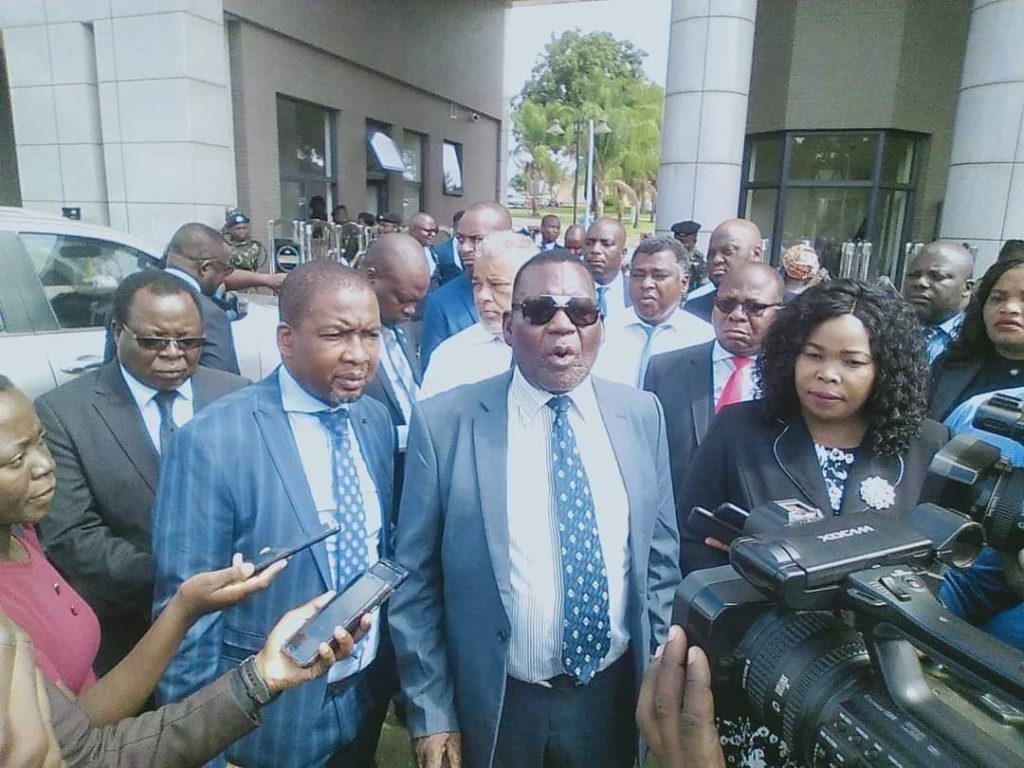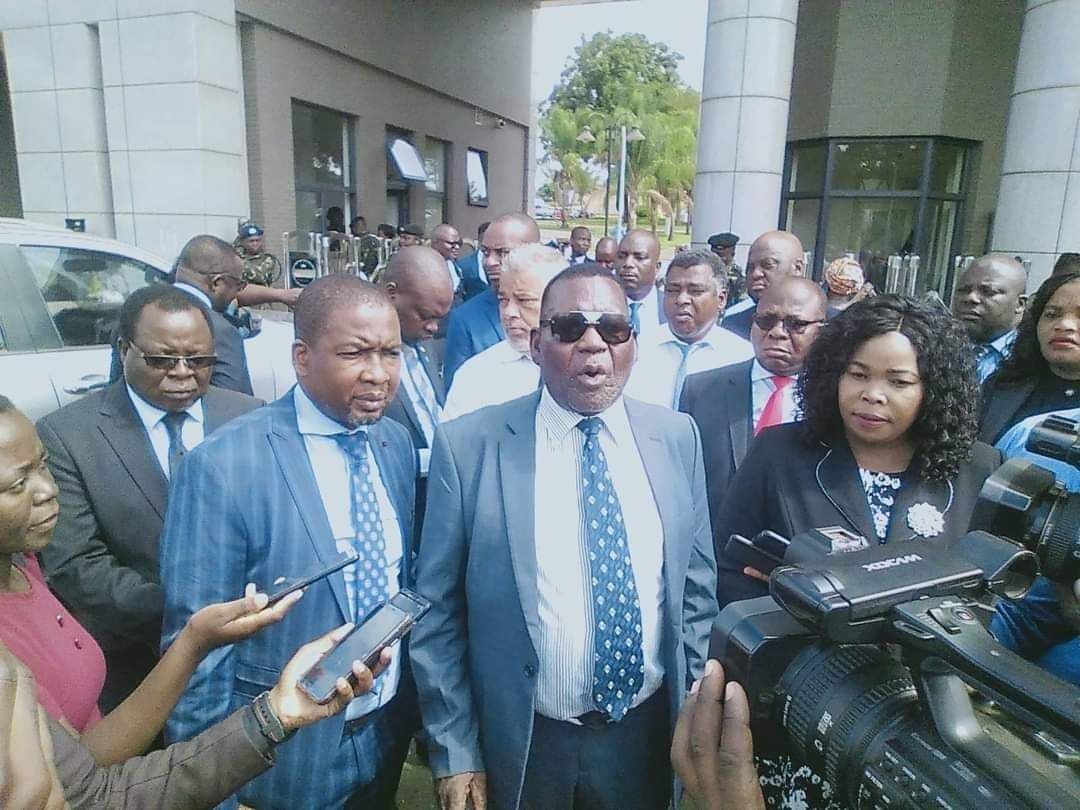By Twink Jones Gadama
In the tumultuous realm of Malawi’s political arena, the judiciary has increasingly found itself at the epicenter of controversy, accused of meddling in politics and stoking tensions that threaten to destabilize the delicate equilibrium of power. The latest episode in this saga revolves around the contentious matter of the ousted DDP presidential advisor and the ensuing power struggle unleashed within parliament.
The crux of the issue lies in the interpretation of Malawi’s parliamentary standing orders, which stipulate that the opposition leader must hail from the opposition party boasting the largest number of MPs. Following the expulsion of Kondwani Nankhumwa, who formerly held the position, the DPP elected Mary Navitcha as the new opposition leader. However, the speaker, with counsel from the attorney general, has rebuffed the recognition of Navitcha’s appointment, resulting in a stalemate that has paralyzed the opposition’s functionality in parliament.

Amidst this political impasse, the judiciary has emerged as a pivotal player, issuing injunctions that appear to favor Nankhumwa’s stance, despite the underlying political nature of the crisis. This has only served to further exacerbate the already volatile situation, casting doubt upon the independence and impartiality of the Malawian judiciary.
The judiciary’s intervention in political affairs is a treacherous gambit, one that risks undermining the democratic principles that underpin Malawi’s governance system. By delving into the murky depths of political disputes, the judiciary runs the perilous gauntlet of eroding public confidence in the institution and sowing discord and division among the populace.
At the core of this quandary is the question of separation of powers and the delicate equilibrium that must be preserved between the executive, legislative, and judicial branches of government. In a democracy, each branch is entrusted with specific roles and responsibilities, and the encroachment upon another’s domain can have far-reaching consequences for the functioning of the state.
The judiciary’s involvement in politics not only blurs the boundaries between the branches of government, but also sets a dangerous precedent for future disputes. If the judiciary is perceived as taking sides in political conflicts, it risks being deemed partisan and bereft of impartiality, an impression that can have grave implications for the rule of law and the integrity of the justice system.
Furthermore, the judiciary’s interference in political matters undermines the principle of political accountability, circumventing established processes and mechanisms for resolving disputes within the political sphere. Instead of allowing the political actors to find a solution through negotiation and compromise, the judiciary’s intervention merely serves to prolong the crisis and deepen existing divisions.
In a nation like Malawi, where democratic norms and institutions are still evolving, it is vital that all stakeholders uphold the rule of law and adhere to the principles of democracy. The judiciary, as a pivotal pillar of the justice system, should uphold the constitution and the laws of the land without fear or favor, abstaining from interfering in political matters that lie beyond its purview.
The judiciary’s role in a democracy is to interpret the law and ensure its fair and impartial application, rather than acting as a political referee or arbiter. By overstepping its boundaries and entangling itself in the political melee, the judiciary risks forfeiting the trust and confidence of the public, jeopardizing its own legitimacy as an independent and unbiased institution.
In conclusion, the intrusive judiciary in Malawi’s political turmoil is a treacherous game of power that threatens to destabilize the delicate balance of power and erode the foundations of democracy. It is imperative that all actors, including the judiciary, respect the rule of law and adhere to the principles of democracy, in order to safeguard the integrity of the justice system and uphold the values that form the cornerstone of a free and democratic society. Only by staying true to these principles can Malawi hope to navigate the choppy waters of its political landscape and emerge stronger and more united in the face of adversity.



